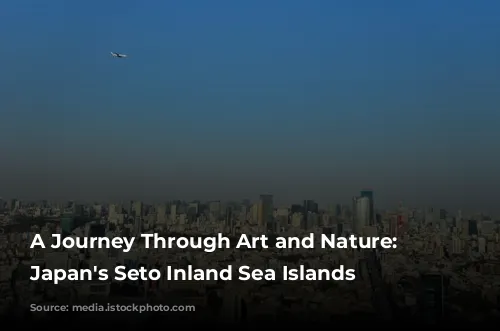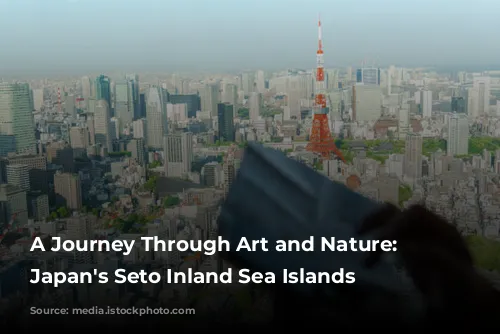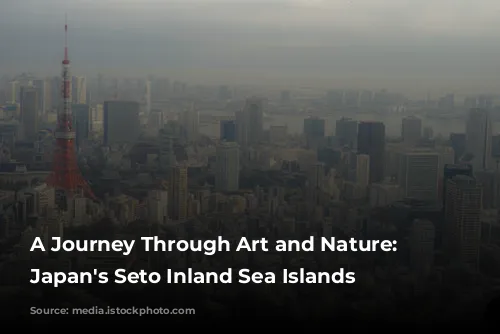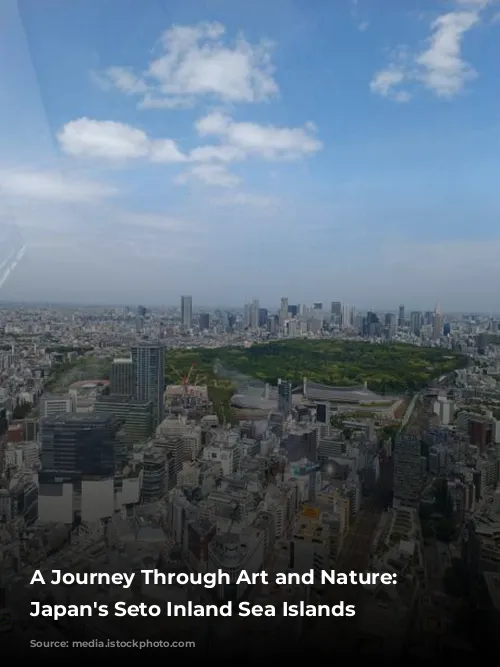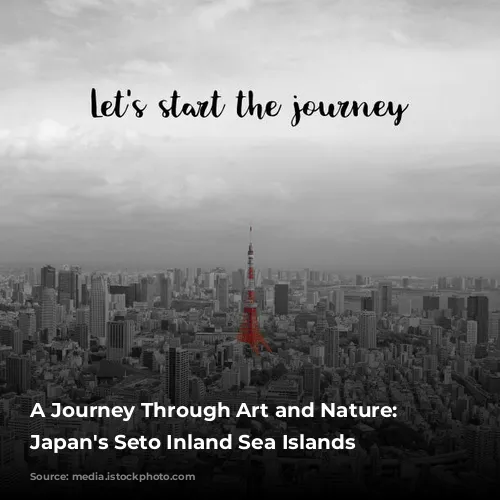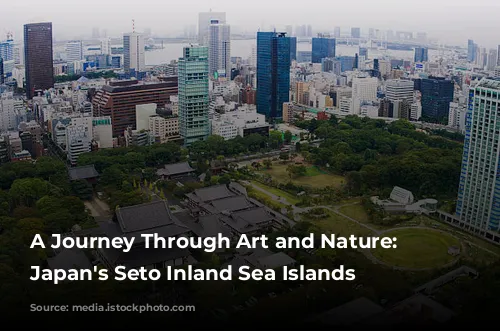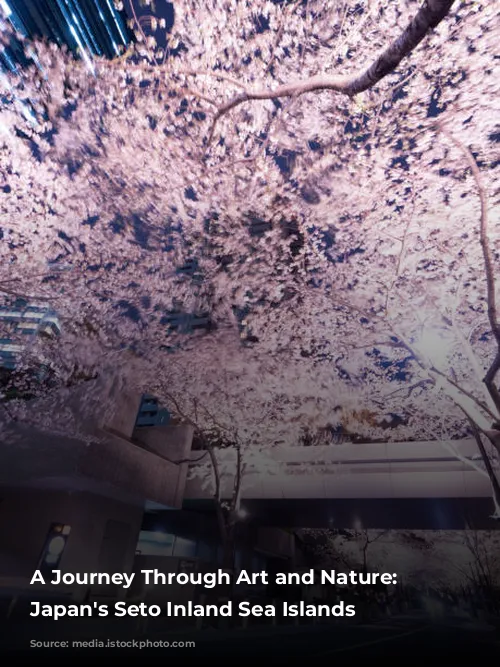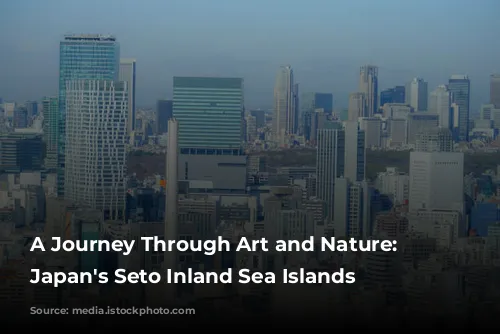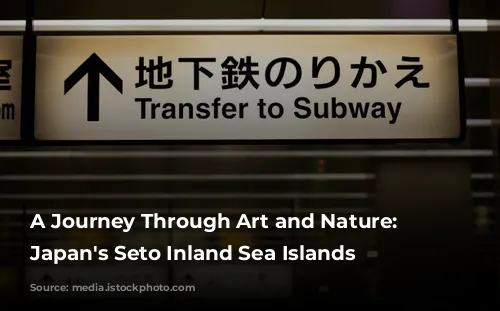Welcome to a world where contemporary art meets serene natural beauty! The Setouchi Triennale, an art festival held every three years, has breathed new life into a group of remote islands in Japan’s Seto Inland Sea. These islands, once struggling with depopulation and declining industries, are now a haven for art lovers worldwide.
The journey begins with Naoshima, the unofficial symbol of Japan’s contemporary art scene, home to Yayoi Kusama’s iconic yellow polka-dotted pumpkin on a pier. This vibrant art installation sets the stage for an unforgettable experience.
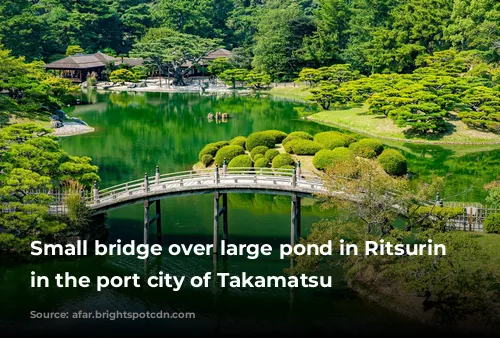
Rediscovering Beauty: Art in Unexpected Places
Beyond the pumpkin, Naoshima offers a unique blend of art and nature. Once-abandoned schools and homes have been transformed into art galleries, showcasing the works of renowned artists like Hiroshi Sugimoto, David Hockney, and Tadao Ando.
The Benesse House, a boutique art hotel designed by Tadao Ando, offers a truly immersive experience. Guests can sleep under the same roof as iconic artworks, enjoying breathtaking views of the Seto Inland Sea.
For a deeper connection with the islands’ history, visit the Chichu Art Museum, a subterranean space designed to preserve the natural landscape.
But Naoshima’s allure goes beyond the visible. The Back Side of the Moon installation by James Turrell invites visitors to experience the darkness and explore their senses. The Sea of Change 98 exhibit by Tatsuo Miyajima, created in collaboration with local residents, encourages reflection on the passage of time.
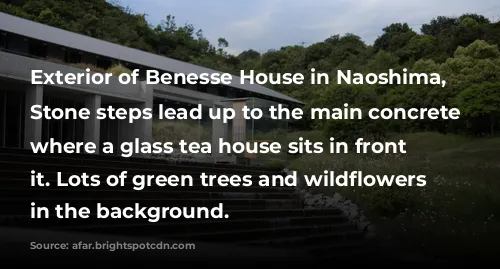
Beyond Naoshima: Exploring Other Artistic Jewels
Naoshima is just the beginning of a grand art adventure. Teshima and Inujima, two nearby islands, offer a more relaxed and intimate experience. The Teshima Art Museum, shaped like a water droplet, is a must-see. Inujima welcomes visitors with the Inujima Seirensho Art Museum and the Art House Project, a collection of stand-alone galleries scattered across the island.
Shōdoshima, the second largest island in the Seto Inland Sea, boasts a unique artistic charm. The Georges Gallery displays the works of French photographer Georges Rousse, while the Hishio no Sato Museum of Contemporary Art showcases contemporary art. Scattered sculptures, including the Gift of the Sun by Choi Jeong Hwa, add a touch of whimsy to the landscape.
Shōdoshima is also known as “Olive Island”, where olive cultivation thrives. This island offers a delightful culinary experience, blending art and nature. Enjoy olive-infused delicacies, savor the traditional wood-barreled soy sauce, and indulge in soy sauce-covered ice cream at the café at Yamaroku Shoyu.
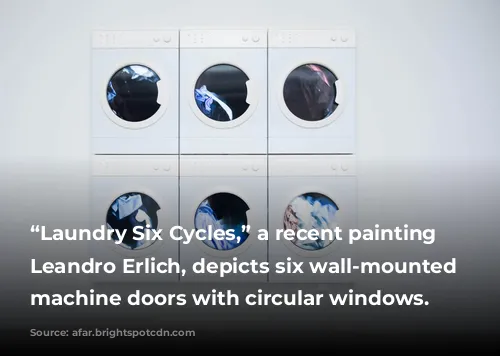
A Tapestry of Islands: Unveiling Hidden Gems
Megijima and Ogijima, the closest islands to Takamatsu Port, offer their own artistic treasures. Megijima boasts a beachfront bonsai art house and playful “Little Shops on the Island,” while Ogijima’s hillside fishing village showcases the permanent installation Ogijima’s Soul, a welcoming portal for visitors.
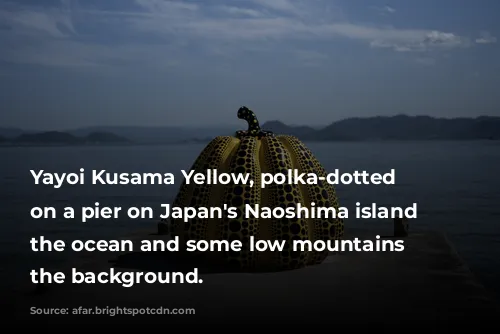
Where Art and Accommodation Meet
Naoshima is the ideal base for a short trip, with a plethora of art installations and notable hotels. Benesse House, with its 65 rooms in four distinct buildings, provides a unique opportunity to sleep in an actual museum or enjoy breathtaking views from the Oval house.
For a luxurious experience, the newly opened Naoshima Ryokan Roka offers a modern take on the traditional Japanese ryokan. Its elegant suites with open-air baths and the on-site En restaurant, serving multicourse kaiseki and sushi dinners, promise a memorable stay.
For a longer exploration of the islands, make Takamatsu your home base. This port city offers easy access to all islands via ferry and boasts attractions like the Ritsurin Garden and its renowned udon noodles.
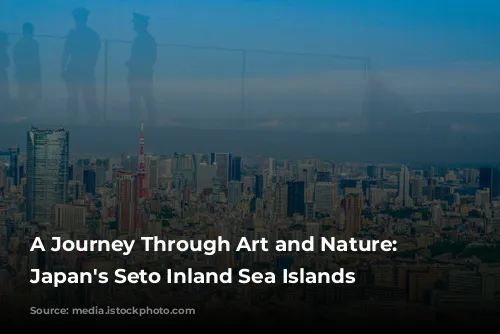
Finding Your Path Through the Islands
Reaching the islands is simple. Travel by train to Okayama and take a bus or local train to Uno Port, where ferries depart for Naoshima. Alternatively, fly or take the train to Takamatsu and catch a ferry to your desired island.
Getting around the islands is a breeze. Public buses and bike rentals are available at most ports.
This artistic adventure is waiting for you. Explore the islands, soak in the beauty of the Seto Inland Sea, and discover the magic of art in unexpected places.
